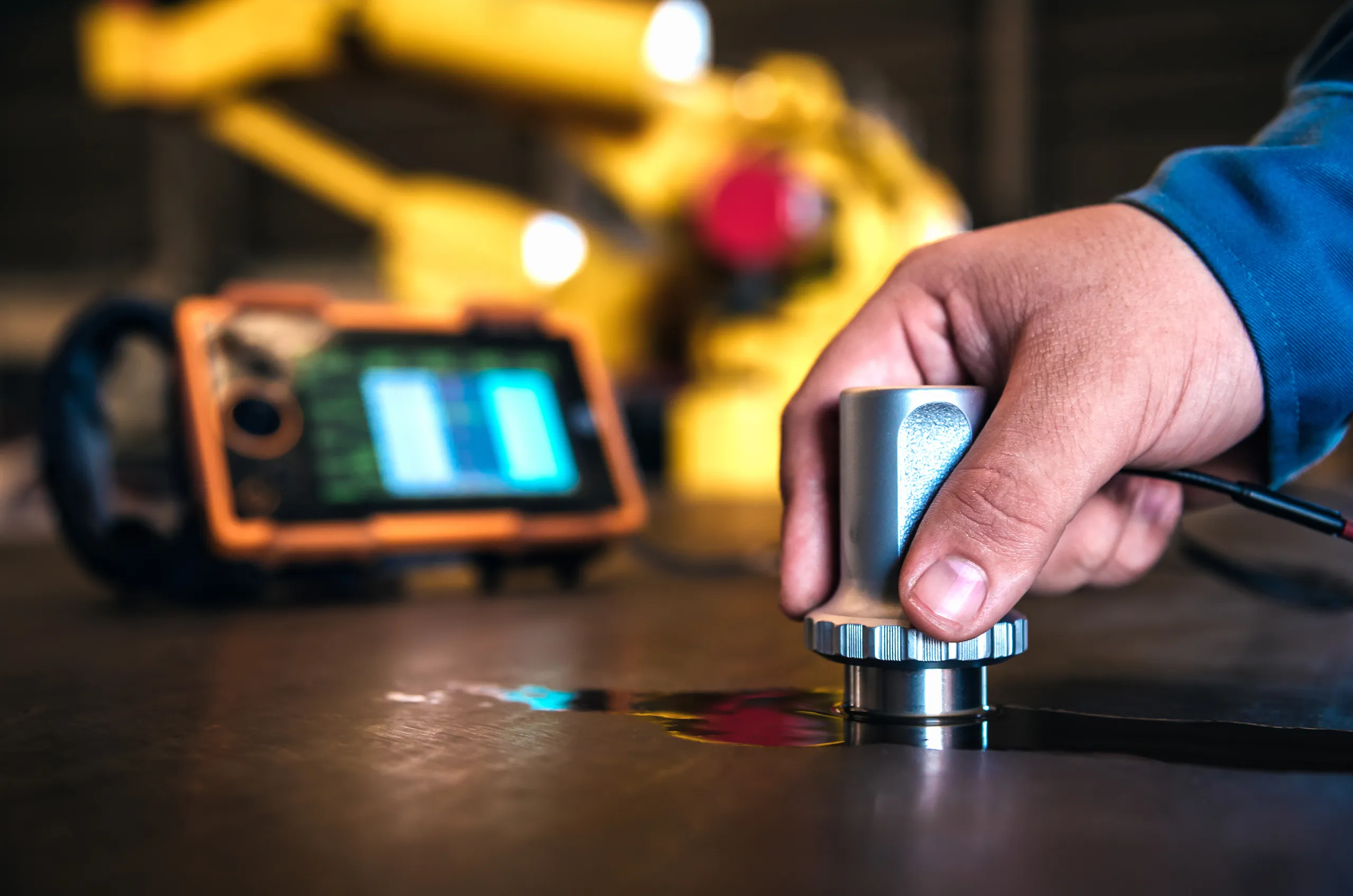GB T12604 Radiographic Non Destructive Testing of Automotive Welds
The GB/T 12604 standard specifies the requirements and methods for radiographic non-destructive testing (NDT) of automotive welds. This method is widely used in the automotive industry to ensure the integrity and quality of welded joints, especially those under critical stress conditions or exposed to severe environmental conditions.
GB/T 12604 employs radiographic imaging techniques to inspect welds for internal defects such as cracks, lack of fusion, incomplete penetration, and porosity. The standard is designed to ensure that these defects are detectable and quantifiable within specified limits, thereby ensuring the reliability and safety of automotive components.
The testing process involves preparing the specimen by cleaning it thoroughly and positioning it in a way that allows for optimal radiographic coverage. Once positioned, the weld joint is exposed to radiation (typically X-rays or gamma rays), and the resulting image is captured on film or digitally. The images are then analyzed for any defects.
The standard outlines specific acceptance criteria based on the type of defect detected and its location within the weld. For instance, small cracks in certain areas may be acceptable if they do not exceed a specified size threshold, whereas larger or more critical defects would result in rejection of the component.
In practice, this method is crucial for quality assurance and compliance with safety regulations. It helps manufacturers identify potential weaknesses early in the production process, allowing for corrective actions to be taken before components are integrated into vehicles.
The application of GB/T 12604 extends beyond mere inspection; it also facilitates continuous improvement by providing detailed documentation that can be used to refine welding processes and equipment. This ensures not only compliance with current standards but also future-proofing against evolving industry requirements.
By adhering to this standard, automotive manufacturers ensure the safety and durability of their products, which is crucial given the high stakes involved in vehicle manufacturing. The use of radiographic NDT helps prevent costly recalls and potential accidents, thereby protecting both end-users and the company's reputation.
Applied Standards
| Standard Code | Description |
|---|---|
| GB/T 12604-2008 | Radiographic non-destructive testing of automotive welds - Requirements and methods. |
| ISO 3857:2006 | Radiographic examination of materials - General requirements and guidance for interpretation. |
| ASTM E744-19 | Standard practice for radiographic testing of metals using X-rays or gamma radiation. |
| EN 444:2018 | Radiographic non-destructive testing - Requirements and methods. |
Eurolab Advantages
At Eurolab, we bring extensive experience in automotive testing to our radiographic NDT services. Our team of experts is well-versed in the latest methodologies and best practices outlined by GB/T 12604 and other relevant standards.
We offer comprehensive pre-test consultation to ensure that all aspects of your project are aligned with the specified requirements. This includes thorough preparation of the specimens, selection of appropriate testing parameters, and setup of equipment.
Our state-of-the-art facilities allow us to conduct high-quality radiographic inspections under controlled conditions, ensuring consistent results across multiple tests. Our advanced imaging systems provide clear, detailed images that enable precise defect detection and quantification.
We also offer post-test analysis and reporting services tailored to your specific needs. Our reports include detailed descriptions of the testing process, findings, and recommendations for corrective actions if necessary. This ensures full transparency and accountability in the quality assurance process.
Our commitment to excellence extends beyond just meeting standards; we aim to exceed expectations by providing reliable, accurate results that contribute to the overall success of your projects. Whether you're conducting routine inspections or performing complex flaw detection tasks, Eurolab is here to support you every step of the way.
Customer Impact and Satisfaction
By leveraging our radiographic NDT services based on GB/T 12604, customers benefit from enhanced product quality and reliability. This translates into increased customer satisfaction as well as reduced costs associated with rework or replacement of defective components.
Our robust testing protocols help identify potential issues early in the manufacturing process, allowing for timely corrective actions that minimize disruptions to production schedules. Additionally, our adherence to international standards ensures compatibility and acceptance across different markets globally.
Customer feedback consistently highlights our ability to deliver accurate results within agreed timelines, contributing significantly to their overall satisfaction levels. We pride ourselves on maintaining strong relationships with our clients by delivering consistent high-quality services that meet or exceed expectations.





